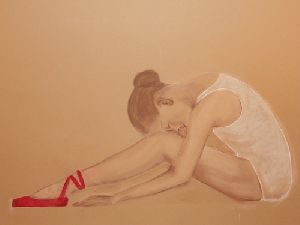A new feature on this blog, the introduction of a guest writer…! In this case the German composer and pianist
Stephan Beneking. From his large collection of atmospherical piano pieces I selected a couple of personal favorites. Stephan has written comments about these piano pieces. Hope you will enjoy the selection…!
Otterhouse Rolf
"
Dance on icy waters" is a classical piano Trilogy composed in 2012. Part 1 describes a couple dancing on a freshly frozen lake. In part 2 the thin ice is cracking, but the couple still continues dancing on the icy water. In the final part "Don´t dance on icy Waters" the ice breaks, and the couple slowly drowns in the lake. Pianist Brad Hill, USA, combined the three pieces into a Suite, with a reprise of the 1st part at the end.
The series "
Valses melancoliques" (composed in 2012) consists of 10 classical piano waltzes in melancholic style. It is my most successful piano series so far, many pianists all over the world have performed these pieces.
"Valse melancolique No. VIII - le desir eternel" won the 1st prize in the international Free-Scores Classical Piano contest 2013.
"Time" is the main theme of the series "
A la recherche du temps perdu", inspired by the amazing book "In search of the lost time" by Marcel Proust.
We live in "fast times", we are "stressed", and we all are longing for the "temps perdu", when life was slower, more down tempo. So the pieces in this series, called after the chapter titles of Proust´s book, are very slow, very accentuated, very expressive.
Both listeners and pianists should take their time, to play and listen. In fact, I would like to encourage both listeners and pianists to appreciate these works as "a short break" from "normal times"...
The series "
Valkyries" consists of 12 works in minor tonality, ranging from C minor to B minor; the pieces are very dramatic and mystical, inspired by the mystic 12 "Valkyrie" figures in Northern mythology: a valkyrie (from Old Norse valkyrja "chooser of the slain") is one of a host of female figures who decide which soldiers die in battle and which live. Selecting among half of those who die in battle (the other half go to the goddess Freyja's afterlife field Fólkvangr), the valkyries bring their chosen to the afterlife hall of the slain, Valhalla, ruled over by the god Odin. There, the deceased warriors become einherjar. When the einherjar are not preparing for the events of Ragnarök, the valkyries bear them mead. Valkyries also appear as lovers of heroes and other mortals, where they are sometimes described as the daughters of royalty, sometimes accompanied by ravens, and sometimes connected to swans or horses. (Source: Wikipedia)
Stephan Beneking
http://open.spotify.com/user/otterhouse/playlist/2ahyW1sj6NPQashJSIqdHq
(HTTP link)


